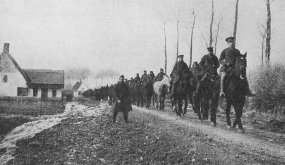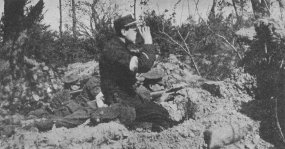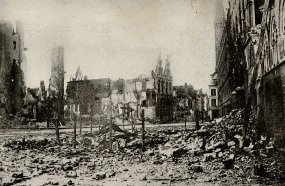
WWII: Maginot Line | Normandy | V-Weapon Sites | Arnhem
Further afield: Crete
| Home Tracing Military Ancestors Travel Advice CWGC Cemeteries Iron Harvest News Book Reviews Glossary Links Contact Me Ypres:
 
|
The Ypres Salient – A Brief HistoryYpres and its environs hold a special place for the British in their perception of the First World War. For, despite all that is written about Britain’s empiric and naval rivalries with Germany, it was essentially because of her treaty obligations to Belgium, of which Ypres is the western-most major town, that Britain entered the conflict in August 1914. Ypres was where the old professional army, some would say the finest that Britain has ever put into the field, was all but destroyed in denying the Germans the last open flank through which they might have gained victory at the end of 1914. In March 1915 it was the scene of the first gas attack on the Western Front when the German Army came within an ace of taking the town. Then, in 1917, it was the location of the battle that, more than any other, has come to symbolise the First World War – water-filled shell-holes, machine guns, obliterating artillery fire, and, above all, the feeling that human beings had become mere cannon-fodder in an age of industrialised warfare...Passchendaele. In fact there was almost continual battle from October 1914 to October 1918 including five climaxes of military activity officially known as:
Four years of war, four years of bloodshed. By the time that it was over, and the Armistice had been signed, the British Empire had lost over 200,000 men defending the town - one in five of all Empire dead in the First World War. A figure this large is difficult to comprehend, but to put it into some kind of perspective, at the current loss rate for the British Armed Forces in Iraq and Afghanistan, it would take another 800 years to reach the total losses of the British and Empire armies at Ypres in 1914-18. But what was so vitally important about this part of Belgium – essentially a hundred square miles of farms, fields, villages and woodland? The answer lies in its topography and location. Ypres is in Flanders and Flanders is very, very flat. But, as one leaves the town to the north or west the ground gradually rises. That is not to say that any of this rising ground is particularly high – but in a landscape as flat as Flanders, these gentle slopes assume significance far beyond their physical stature. The exception is to the south where a number of hills, known collectively as the "Flanders hills", dominate the surrounding land. An army that held this high ground could see the enemy below and could use its artillery and machine guns to disrupt and destroy it. This high ground effectively shielded the Channel Ports. As the war progressed and the British Army grew in size, Calais, Bolougne and Etaples became vital lifelines as disembarkation ports for reinforcements, supplies, war material and road transport. If captured by the Germans, British forces may have been forced to surrender, and her ally France, alone, would undoubtedly have fallen. Britain, isolated, would have faced the prospect of German U-boats quartered in Channel Waters, ready to find and destroy all vestige of Britain’s maritime power. The subjugation of Britain and her Empire could not have been far behind. |



